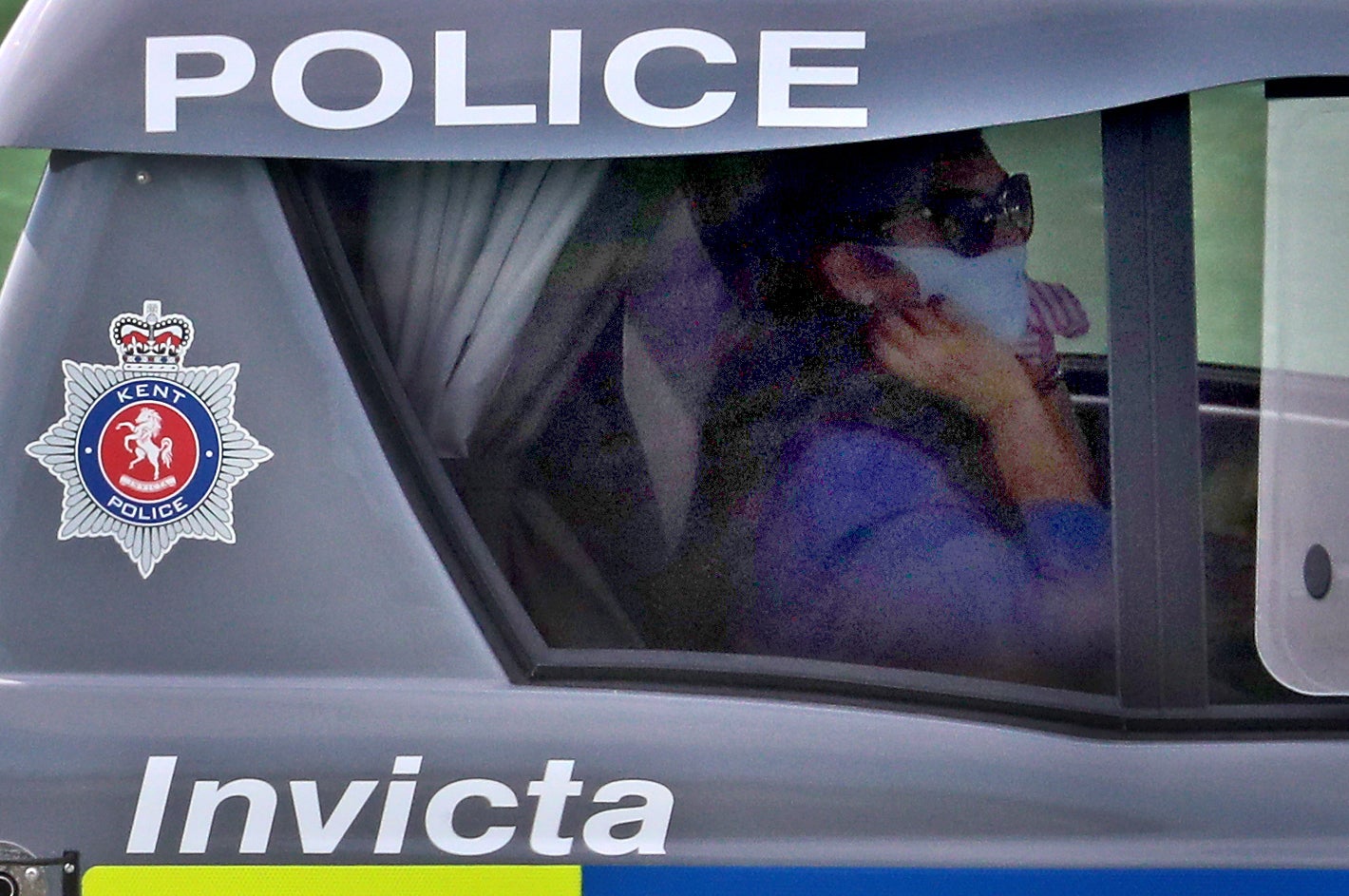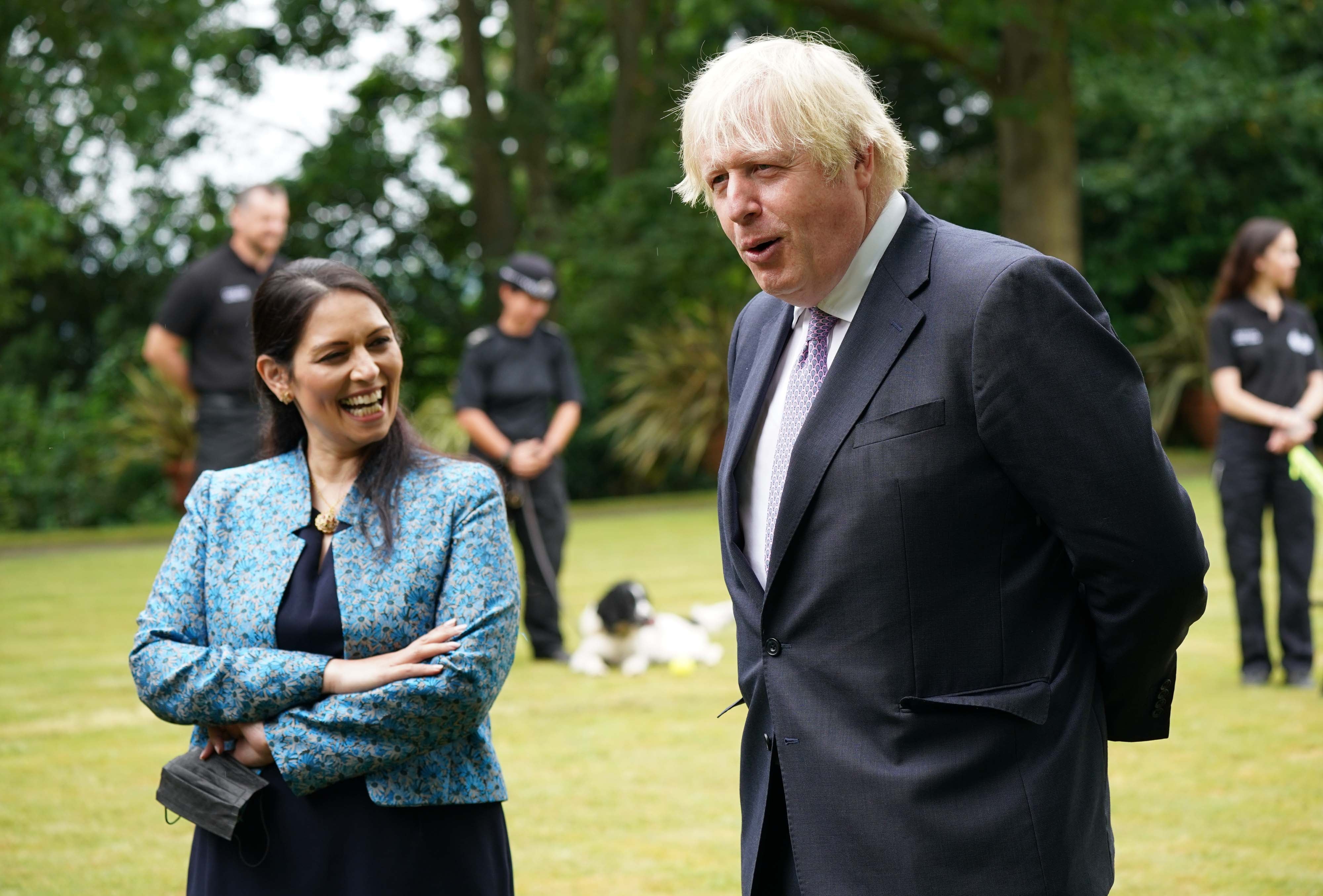
Priti Patel had already courted controversy before she joined Boris Johnson’s Cabinet in 2019.
The Conservative MP for Witham since 2010 re-emerged from the backbenches when she was promoted to Home Secretary three years ago.
In 2017 she was forced to resign as international development secretary by then-prime minister Theresa May over unauthorised contacts with Israeli officials.
Known for talking tough on crime and depicted by critics as divisive, she attracted attention years earlier for her views.

In 2006 Ms Patel said she was in favour of the “ultimate punishment” for the worst crimes and, during a Question Time debate in 2011, supported the death penalty – although she has since insisted her comments were taken out of context.
Mr Johnson himself described Ms Patel as a “hardline” home secretary, even joking that, under her, the UK could become the “Saudi Arabia of penal policy”.
During the course of her tenure, Ms Patel has been accused of bullying staff; became embroiled in a war of words with France over tackling the growing numbers of migrants crossing the English Channel; was dogged by criticism from campaigners over a wave of sweeping immigration and asylum reforms amid accusations her policies were “anti-refugee”; and fell out of favour with the police amid a row over pay freezes.
But, among her supporters, the Home Secretary is praised for taking what is described as a fair but firm and no-nonsense approach on difficult subjects which prompt debate.
In April Ms Patel signed what she branded a “world-first” agreement to send migrants deemed to have arrived in the UK illegally to Rwanda – a policy considered highly controversial among opponents, as well as some Conservatives, in light of concerns over the East African nation’s track record on human rights among other factors.
The first deportation flight – due to take off in June – was grounded amid legal challenges. The legality of the policy is being called into question in a High Court battle this week.
Mr Johnson famously vowed to “stick with Prit” when bullying allegations swirled and his then adviser on ministerial standards, Sir Alex Allan, quit his post when the Prime Minister overruled his conclusion that she had breached the Ministerial Code.

The fallout resulted in former Home Office permanent secretary Sir Philip Rutnam accepting a six-figure sum from the Government after launching legal action against her following his dramatic resignation in 2020, in which he accused her of bullying subordinates and carrying out a “vicious and orchestrated” briefing campaign against him.
That same year, while there were growing tensions between the Government and the legal profession, Ms Patel caused a storm with an “ill-advised” tweet about the deaths of 39 migrants in Essex during an ongoing people smuggling trial. This prompted a judge to direct jurors to ignore comments made by politicians on social media.
Mr Johnson stood by Ms Patel again last year over more claims of Ministerial Code breaches amid allegations she arranged a meeting between a billionaire Tory donor and British Airways.
This came as she was accused of “running scared” after reportedly cancelling an in-person appearance at a police conference as high-ranking officers set out plans to withdraw from a pay review system and take legal action over pensions.
Earlier in 2021 the Police Federation of England and Wales said it no longer had confidence in her as Home Secretary after a bitterly opposed pay freeze for officers was confirmed.
The London-born married mother – who attended a comprehensive school in Watford before studying economics at Keele University and completing postgraduate studies at the University of Essex – has also clashed with others over racism.
She hit back at a group of black, Asian and minority ethnic (BAME) Labour MPs who accused her of using her Ugandan-Indian heritage to cast doubt on black communities’ experience of racism, telling them she refused to “take lectures” on prejudice as she described being frequently racially abused.
Despite her condemnation of racism faced by England footballers, she was also criticised for describing the action of players taking the knee as “gesture politics”.
In a letter to Mr Johnson setting out her plan to resign after Liz Truss takes office as prime minister, Ms Patel said it had been the “honour of my life” to serve as Home Secretary and that she would “continue my public service to the country and the Witham constituency from the backbenches” once a successor is appointed.







